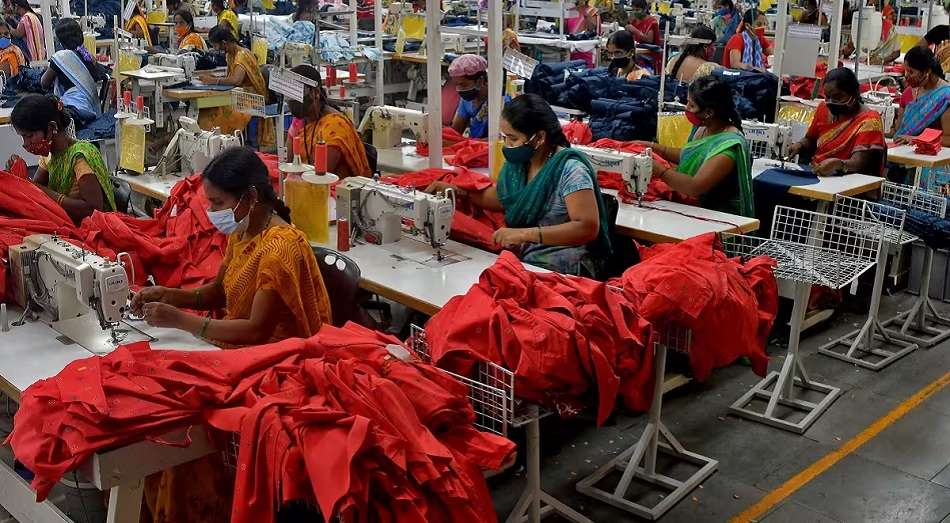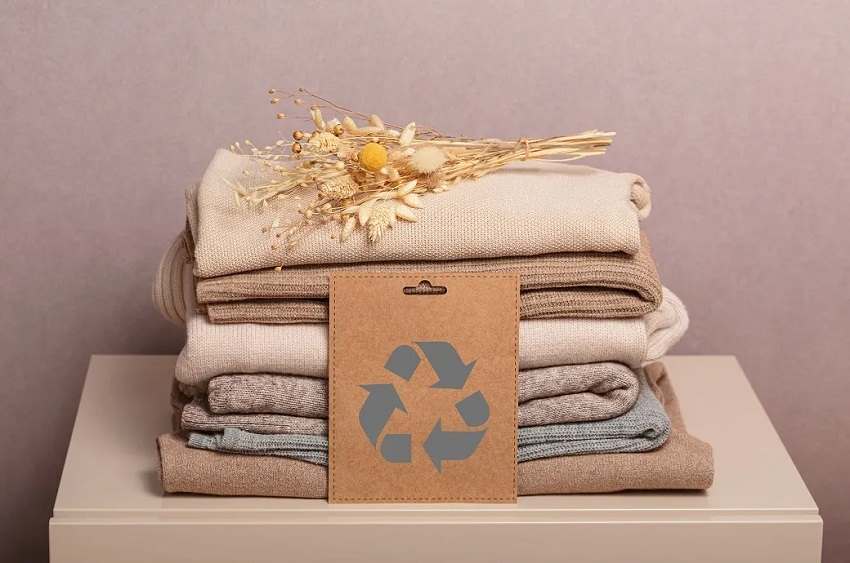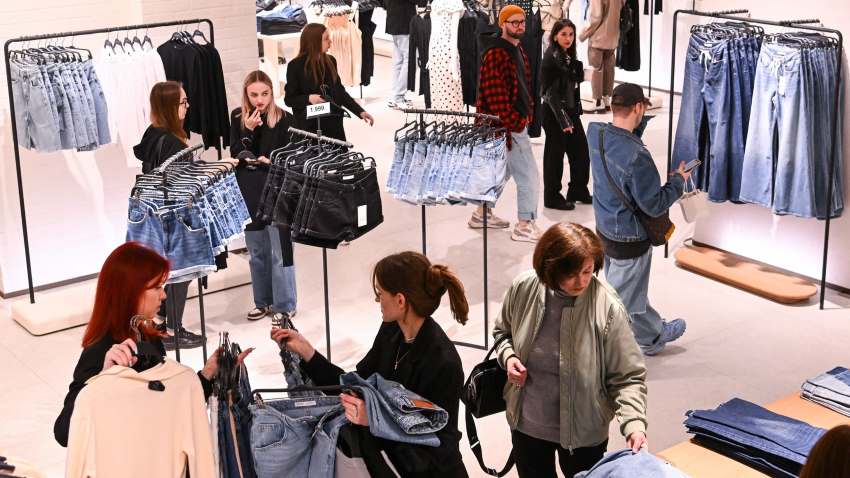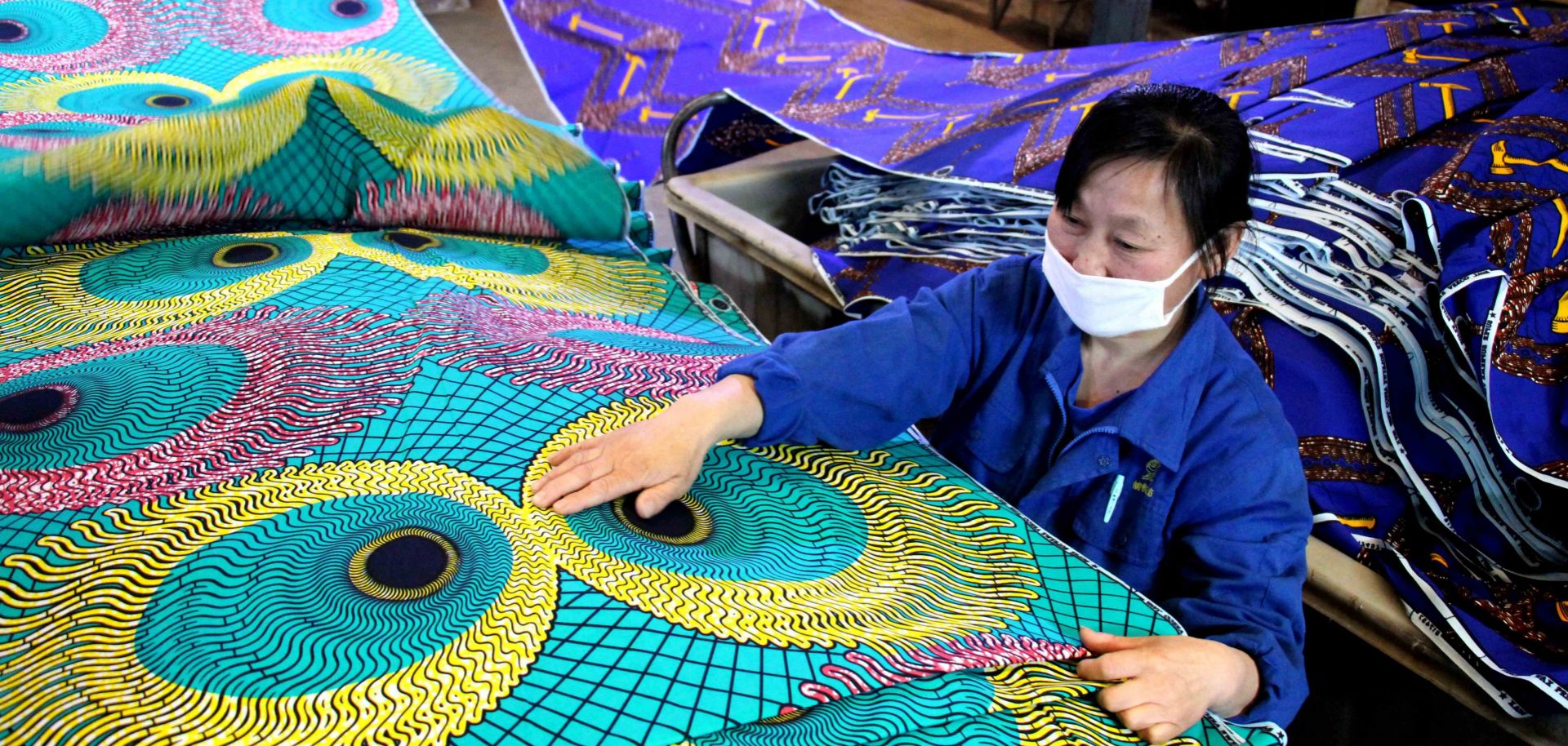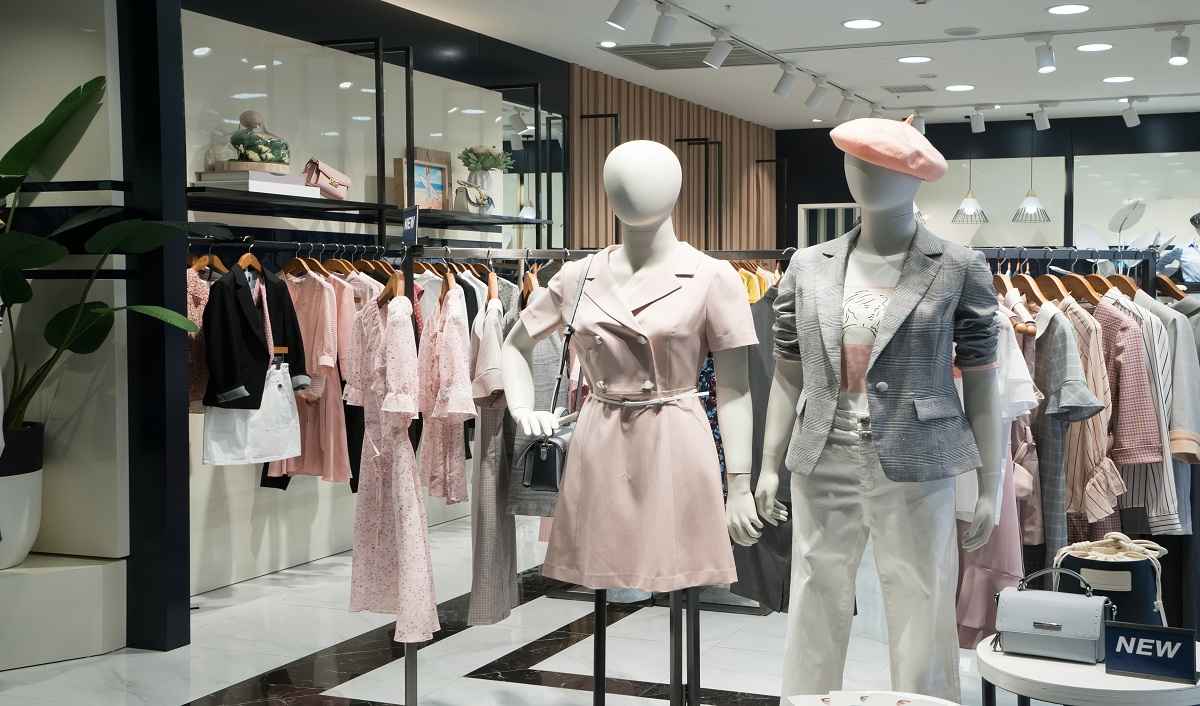FW
The Luxury Institute LLC’s 2018 “State of the Luxury Industry” report reveals what international luxury consumers expect from their shopping experience, with customer service ranking highly and politeness topping the list of priorities for sales staff. Nearly 53 per cent of wealthy consumers surveyed stated that customer service was an important part of a luxury brand, a response that was only second in popularity to superior quality, cited by 67 per cent of respondents as essential in luxury products.
Sales professionals working in the jewellery and watches sector were the most frequently commended, receiving positive reviews from 42 per cent of those surveyed. Professionals working with fashion apparel and designer shoes, however, fared less well with approval ratings of 27 per cent and 18 per cent, respectively.
Although focused on the luxury sector, the report echoes many of the shopping trends being experienced in the wider retail industry, where brands are increasingly focusing on customer experience in an attempt to gain the edge over their competitors.
E-commerce brick-and-mortar complements, some luxury brands have even taken the fight to the courts. US cosmetics group Coty won a case in the EU Court of Justice in December, preventing sales of its luxury goods on online platforms. The State of the Luxury Industry report surveyed affluent consumers from the United States, the United Kingdom, France, Germany, Italy, Japan, China, and Mexico for its 2018 edition.
Respondents in the US came from households representing the top 11 per cent of earners, with a minimum annual gross income of $150,000. Other international participants represented the top 10 per cent of earners in their respective countries.
Karl Mayer has set up a new company -- Karl Mayer Digital Factory GmbH -- with its registered office in Frankfurt/Main. With this new business, the Karl Mayer Group aims to build up further-reaching digital competency with an agile environment. The main aim is a fast and flexible development of new digital solutions, offering perceptible value addition for customers. The targeted business models, products and services, as part of Karl Mayer digitisation strategy, are targeted to support clients in their markets.
Antonia Gottschalk, Head of Digitisation, Karl Mayer and Managing Director of Karl Mayer Digital Factory GmbH said, “In the digital world, too, only those offers are successful which can best satisfy the consumer demands. This is the reason why we consistently focus on customer benefits and combine our long-standing experience as leading textile machinery manufacturer with new, digital know-how.”
Karl Mayer is a technology and market leader as well as a driving force for innovations in textile machinery building. The manufacturer offers perfect solutions for warp knitting, technical textiles and warp preparation for weaving.
India’s 50.7 per cent of workers working in the garment sector earn less than the minimum wages, which is worse than all but Philippines, where 53.3 per cent of workers in the sector earn less than the minimum wages. In Vietnam, only 6.6 per cent workers in the sector earn less than minimum wages, in Combodia it is 25.6 per cent, in Pakistan 37.4 per cent, in Thailand 37.5 per cent, and in Indonesia 39.1 per cent.
According to Oxfam, when the policy for enforcing the minimum wage criterion is enforced, in India, as elsewhere in the seven countries studied, things go “more to the benefit of men than women. As per the study in Pakistan’s garment sector, 86.9 per cent of women are paid less than the minimum wage, while the figure for men is 26.5 per cent. India, the Philippines and Thailand also have double-digit gender compliance gaps. In India, 74 per cent males working in the sector get minimum wages, as against 45.3 per cent females.
The study states “In countries like India and the Philippines, at least one in every two workers in the garment sector are paid below the minimum wage.” It estimates, “It would take 941 years for a minimum wage worker in rural India to earn what the top paid executive at a leading Indian garment company earns in a year.
The study further says, it would take around 17.5 days for the best paid executive at a top Indian garment company to earn what a minimum wage worker in rural India will earn in their lifetime (presuming 50 years at work).
It adds, it would cost around Rs 326 million a year to ensure 14,764 minimum wage workers in rural India were paid a living wage. This is about half the amount paid out to wealth shareholders of a top Indian garment company.
India on Tuesday bid for greater systematic trade in textiles with the Association of Southeast Asian Nations (Asean). Textile Minister Smriti Irani told a large contingent of business leaders at an event organised by industry body Ficci, “India can be a one-stop sourcing destination for textile materials from Asean,”
The minister also touched upon the ghost of cheaper Chinese materials/finished products flooding Asean markets. “They cannot compete with the rich legacy of our handlooms,” she said proudly. To this effect, a unique fashion show was organised here on Tuesday by Ficci, where traditional fabrics from both India and Asean members were showcased by young designers from both sides. During the last fiscal, India’s textiles exports to the region touched $1.20 billion, while imports were $546 million. Textiles Secretary Anant Kumar Singh noted, “With a strong multi-fibre base and an abundant supply of raw materials like cotton, wool, silk, jute and man-made fibres, India enjoyed a distinct advantage of backward integration that many countries do not possess,”
Despite the operation of the FTA in goods with Asean, India’s exports of textiles and apparels to the region have been constant in the last few years and had not shown much movement. Though India has a unique advantage of having the presence of the entire textile value chain, its most exported items to Asean consisting of cotton fibre, cotton yarn and fabrics have not grown to the desired extent, Singh added.
The government has noted that Indian exporters have not been able to explore and leverage the terms of trade deal to its fullest advantage. It is also looking at methodologies to create a robust framework to export textiles and apparel to Asean markets, and further to China, Northeast Asia and the EU through their various trade agreements.
Investors have the opportunity of entering the entire value chain of synthetics, value-added and specialty fabrics, fabric processing and technical textiles. Trade and economy ministers from seven nations in the 10-country bloc was of the view that the speedy conclusion of the Regional Comprehensive Economic Partnership (RCEP) was necessary. However, the Indian government said the sensitivities of all nations — services trade in its case — needed to be first taken into account.
The Belgian division of the multinational group Easyfairs – specialised in organising events and managing exhibition halls and congress centres – has taken over the event activities of the non-profit association Textirama. Textirama promotes the textile sector in Belgium and following this move, Easyfairs Belgium adds four fairs and a conference to its portfolio— the majority of which are in the professional sector of interior textiles:
Intirio, MoOD, Indigo Home Edition and the Intirio Conference have, in the meantime, become established concepts in the Belgian interior and textile sector. The Goed Gevoel Ladies Fair, an experience event for women and a cooperation with De Persgroep’s magazine, entitled Goed Gevoel, is also being transferred as part of the deal. With the acquisition by Easyfairs, the organisation of these events remains assured and the promotion of the sector is guaranteed.
Dirk Oosterlinck, Head, Easyfairs Events Belgium avers, “We believe in the power and the potential of the Textirama fairs and conference. This will benefit the entire textile sector in Belgium.”
The members of the Textirama Advisory Board will also continue to play an advisory role within this new business unit. “With these fairs in the B2B interior and decoration sector and the Goed Gevoel Ladies Fair in the B2C segment, we are adding a new and important business unit to our portfolio, one that enables us to develop new synergies with our existing fairs,” Oosterlinck added. The general manager of Textirama, Patrick Geysels and his team will lead and further develop the new B2B business unit ‘Textiles, Interior & Design’.
Patrick exults, “We are looking for continuity and professionalism within a rapidly changing fair landscape. In an organisation like Easyfairs we find the increase in scale that we deem necessary to be able to keep on growing.”
Invista's Cordura and Converse, the iconic street brand recognised around the world for its footwear and apparel, have collaborated to present durable new bags at Outdoor Retailer + Snow Show 2018. Reflecting lifestyle trends in urban cities, the bags are an essential item to meet the demands of being on the go — night and day. The Converse X Cordura collection brings skate-inspired durability to everyday wear.
"As we continue to encourage consumers to Live DurableTM in all facets of life, we're excited to team up with such a well-respected brand," said Cindy McNaull, global Cordura® brand and marketing director. "The Converse X Cordura® Collection is geared towards the young city dweller and features bags that are designed not only to serve as a stylish piece, but also a survival kit throughout their day."
The new collection delivers bold transit essentials and bags made for the city streets - whether it's a modern take on the traditional outdoor silhouette for long days with larger loads, a cross body pack that hugs close for secure carry during skate or bike, or a weekender duffle that's sneaker-friendly. The new Street 22 Backpack, Toploader Backpack, 3-Way Duffel, Utility Backpack and Fast Pack will be available February 2018.
At Pitti Filati, and as part of a journey to make better products, the Filpucci Group invites the fashion industry to experience its new line of creativity in sustainable yarn. The “Responsible Innovation Collection” represents a new level of smart innovation linked to responsible, eco-centric production. The collection uses the best high-tech, natural-based materials, combined with Filpucci’s dying & finishing expertise. This gives customer’s real access to a new, fashion-forward aesthetic, where quality and smart uniqueness in these new, more responsible yarns, deliver a new textile era of sustainable fashion solutions that are driven by ethical and natural values.
Filpucci has announced it is a new official partner of Creativity Lifestyle and Sustainable Synergy (C.L.A.S.S.). Since 2007, C.L.A.S.S., a unique multi-platform HUB based in Milan, specialises in integrating a new generation of eco-values for fashion, home products and business strategies. These values speak to a new, smarter, contemporary consumer.
Founded by Giusy Bettoni, C.L.A.S.S. introduces a new way of design thinking that represents a shift in culture, enabling businesses to be competitive and socially innovative. Filpucci is also a key ambassador for the unique C.L.A.S.S. partner product, Re.Verso™, for its luxury upcycled cashmere yarn. New additional steps on the Filpucci journey towards a more responsible approach to smart design and manufacture include: The signing of a new ‘Values Chart’ in conjunction with a joint consortium to guarantee sustainable production chains that are fully traceable with certified materials and measured environmental performances, such as reducing CO2, water use and power consumption.
The company is also GRS accredited with dyeing facilities that are second to none, boasting a GOTS certification alongside recycling 70 per cent of water and also as part of the DETOX campaign for the last 3 years. This is a key added value mirroring the entire company’s dyeing operation. The Filpucci Group produces its own ‘Balance of Sustainability’ report each year to measure and account for issues relating to the business impact of a responsible innovation strategy and research optimisation into origins of materials, transparency, certifications and processes designed to reduce environmental impacts and a no-waste manufacturing philosophy.
A four-day exposition on yarn, fabric, denim, dyes and chemicals will open on January 31, in Dhaka’s International Convention City Bashundhara (ICCB). It is expected to create greater interaction among local and international stakeholders. Conference and Exhibitions Management Services (CEMS) Global CEMS Global in association with China Council for the Promotion of International Trade (CCPIT TEX) is organising the trade show called ’13th Dhaka International Yarn and Fabric Show (DIFS)-2018 – Winter Edition’.
Two other exhibitions the ‘2nd Dhaka Denim Show 2018 Winter Edition International Expo’ and the ’30th Dye+Chem Bangladesh 2018-Winter Edition’ will also take place simultaneously. President and Group MD of CEMS Global, USA and Asia Pacific Meherun N Islam said the readymade garment (RMG) industry is the key driving force of the country’s economy with over 80 per cent contribution to export income. Bangladesh is currently the second-largest apparel exporter, after China, she said adding that the country has the ability to overtake China for various reasons including reasonable production cost. “Chinese entrepreneurs are looking for joint venture scope in other countries including Bangladesh as production cost is getting higher there,” she noted.
DIFS-2018 is expected to help Bangladeshi entrepreneurs expand business opportunities, she averred. A total of 350 organisations from 21 countries including Bangladesh, China, Germany, Italy, Malaysia, India, Taiwan and Vietnam will participate in the trade shows. They will display various types of products and services including yarn, denim, knitted fabrics, fleece, artificial leather, buttons and zippers.
"Juki India which works mainly in the non-apparel and knitwear industry showcased for the first time at the recent GTE held in Delhi and made a mark with its advanced technology machines. “This time at GTE fair, we showcased many advanced technology machines displayed for the first time in India. The machines are equipped with NTSC technology with directs drives and are connected with cloud,” says R Gopal Kukreti, General Manager. Juki launched a machine that makes 10 to 12 cuffs and collar in one go."

Juki India which works mainly in the non-apparel and knitwear industry showcased for the first time at the recent GTE held in Delhi and made a mark with its advanced technology machines. “This time at GTE fair, we showcased many advanced technology machines displayed for the first time in India. The machines are equipped with NTSC technology with directs drives and are connected with cloud,” says R Gopal Kukreti, General Manager. Juki launched a machine that makes 10 to 12 cuffs and collar in one go.

“At Juki, we are committed to customer satisfaction, and put all efforts to be close to customer needs,” says Kukreti. Juki India was established in 1995 as a representative office with a presence in New Delhi and Bangalore covering the Northern and Southern regions. Over the years, they have expanded operations significantly through nine branches at important apparel production clusters in the country and today have a full-fledged presence in with adequate sales and support.
Juki India has an extensive network of offices. This is further strengthened by the presence of agents and distributors who help in distributing their products. “We have continuously strengthened certain categories such as electronic assembly and apparel systems and equipment, with the technology of industrial sewing machines at its core,” says Kukreti.
Going forward, they are focusing on improved customer relations. The other division such Surface mount Technology (SMT) systems and household sewing machines also operate out of Juki India. “Our dedicated technical engineers and specialist team from Juki Corporation along with agents or distributors provide customer with machine knowledge, machine installation and maintenance services. Additionally, we conduct product seminars and training to all our valued customers and prospective buyers with the aim of providing technical and operational know-how of Juki industrial sewing machines,” he informs.
They also provide support to industrial customers in the form of services and software such as assisting apparel manufactures in improving productivity, developing highly efficient production systems and improving their work environment.
Kukreti sees strong competition in his segment and keeps ahead by providing good technical services to help client’s business grow, “We are associated with the industry for 22 years. We believe in quality and services. We are a Japan-based company and all manufacturing is done over there.” He feels “The future of garmenting is really bright,” and continues, “The domestic market is good and we need to exploit it properly. It will bring huge benefit to the economy. We are tapping markets in Chattisgarh and Jharkhand.”
"Tukatech is a solutions provider for textile product development. And as Umesh Gaur, President (Asia), Tukatech, says “We don’t just sell a product, we provide holistic solutions to our clients. A manufacturer/exporter looking at setting up a plant is not expected to be an expert in all areas of production and this is where we come into the picture by providing technical excellence and services.” Gaur says they have seven companies in their roster of clients — who were not tech savvy in some of areas of manufacturing. Tukatech helped them network with the right people and provided them support in-house."

Tukatech is a solutions provider for textile product development. And as Umesh Gaur, President (Asia), Tukatech, says “We don’t just sell a product, we provide holistic solutions to our clients. A manufacturer/exporter looking at setting up a plant is not expected to be an expert in all areas of production and this is where we come into the picture by providing technical excellence and services.” Gaur says they have seven companies in their roster of clients — who were not tech savvy in some of areas of manufacturing. Tukatech helped them network with the right people and provided them support in-house.
Offering time saving solutions

Explaining their working Gaur says, “Once a manufacturer gets a query on a product from an exporter or a domestic player, they first create a sample with all details like patterns, types and designs etc. We then use our software — which does not need a digitiser — to help the client create a product. This technology brings efficiency into the process along with faster pace and accuracy. The software minimises the chance of a product being rejected.”
Gaur informs they also provide solutions in warp knitting and grading. The major concern for a manufacturer is product development and approval. It takes time for a product to get approved, sometimes more than 30 to 40 days. “We help in reducing time cycle for approval by getting virtual sampling through the software. Then it is uploaded on cloud — which is another area of service we provide. This saves time, energy, labour and more. It’s all about productivity. So cloud solution and 3D are upcoming technology offerings. We also have cutting equipment and spreaders.” On India becoming a global garmenting hub, he says “India holds a trump card in many areas. Indian products are still considered best in quality, though we don’t produce in quantity like our neighbouring countries. We are blessed with a variety of fabrics and handmade designs. The kind of fabrics that are available here cannot be found anywhere else,” he expounds.
Gaur says they are looking to increasing market share, “We are happy with satisfied clients and well executed projects. Our bottom line is customer satisfaction. We are a US-based company and have significant expertise in our area of operation. There are more than 300 CAD companies worldwide. But we are doing exceptionally well everywhere. In India, we have clients like Future Group, KKCL, Gokuldas, Reliance etc. It is not that they are using these technologies first time but they chose us over competition because we provide them what others can’t.” Showcasing at the recent Garment and Textile Expo in Delhi, Gaur says they are associated with GTE from the very beginning. “The response in this edition of GTE was phenomenal. It’s been a win-win situation for us.”

